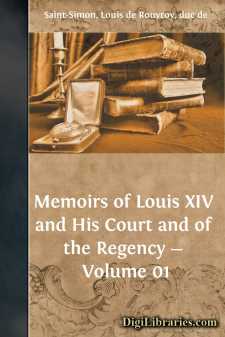History
- Africa 30
- Americas (North Central South West Indies) 50
- Ancient 68
- Asia 58
- Australia & New Zealand 8
- Canada 41
- Caribbean & West Indies 1
- Civilization 20
- Eastern Europe 12
- Europe
- Expeditions & Discoveries 60
- General 77
- Historical Geography 1
- Jewish 9
- Latin America 3
- Medieval 8
- Middle East 13
- Military 248
- Revolutionary 8
- Study & Teaching 5
- United States 353
- Western Europe 56
- World 13
Europe Books
Sort by:
Outbreak of the Revolutionary War in 1792-Its immediate causes- Declaration of Pillnitz made and withdrawn-Agitation of the Priests and Emigrants-War Policy of the Gironde-Provocations offered to France by the Powers-State of Central Europe in 1792-The Holy Roman Empire- Austria-Rule of the Hapsburgs-The Reforms of Maria Theresa and Joseph II.-Policy of Leopold II.-Government and Foreign Policy of...
more...
English writers have done more for the illustration of Spanish history, than for that of any other except their own. To say nothing of the recent general compendium, executed for the "Cabinet Cyclopaedia," a work of singular acuteness and information, we have particular narratives of the several reigns, in an unbroken series, from the emperor Charles the Fifth (the First of Spain) to Charles...
more...
Our Author, John Francis Paul de Gondi, Cardinal de Retz, Sovereign ofCommercy, Prince of Euville, second Archbishop of Paris, Abbot of SaintDenis in France, was born at Montmirail, in Brie, in October, 1614. His father was Philippe Emanuel de Gondi, Comte, de Joigni, General ofthe Galleys of France and Knight of the King's Orders; and his mother wasFrances Marguerite, daughter of the Comte de...
more...
ORIGINAL PREFACE. Our Author, John Francis Paul de Gondi, Cardinal de Retz, Sovereign of Commercy, Prince of Euville, second Archbishop of Paris, Abbot of Saint Denis in France, was born at Montmirail, in Brie, in October, 1614. His father was Philippe Emanuel de Gondi, Comte, de Joigni, General of the Galleys of France and Knight of the King's Orders; and his mother was Frances Marguerite,...
more...
by:
Various
The Memoirs, of which a new translation is now presented to the public, are the undoubted composition of the celebrated princess whose name they bear, the contemporary of our Queen Elizabeth; of equal abilities with her, but of far unequal fortunes. Both Elizabeth and Marguerite had been bred in the school of adversity; both profited by it, but Elizabeth had the fullest opportunity of displaying her...
more...
MADAME:—Cardinal Mazarin thought of nothing else now but how to rid himself of the obligations he lay under to the Prince de Conde, who had actually saved him from the gallows. And his principal view was an alliance with the House of Vendome, who had on some occasions opposed the interest of the family of Conde. In Paris the people libelled not only the Cardinal, but the Queen. Indeed it was not our...
more...
In December, 1651, the Parliament agreed to the following resolution: To send a deputation to the King to inform him of the rumours of Mazarin's return, and to beseech him to confirm the royal promise which he had made to his people upon that head; to forbid all governors to give the Cardinal passage; to desire the King to acquaint the Pope and other Princes with the reasons that had obliged him...
more...
MADAME:—I lay it down as a maxim, that men who enter the service of the State should make it their chief study to set out in the world with some notable act which may strike the imagination of the people, and cause themselves to be discussed. Thus I preached first upon All Saints' Day, before an audience which could not but be numerous in a populous city, where it is a wonder to see the...
more...
INTRODUCTION No library of Court documents could pretend to be representative which ignored the famous "Memoirs" of the Duc de Saint-Simon. They stand, by universal consent, at the head of French historical papers, and are the one great source from which all historians derive their insight into the closing years of the reign of the "Grand Monarch," Louis XIV: whom the author shows to be...
more...
INTRODUCTION No library of Court documents could pretend to be representative which ignored the famous "Memoirs" of the Duc de Saint-Simon. They stand, by universal consent, at the head of French historical papers, and are the one great source from which all historians derive their insight into the closing years of the reign of the "Grand Monarch," Louis XIV: whom the author shows to be...
more...




![The Memoirs of Cardinal de Retz - Volume 1 [Historic court memoirs]](https://digilibraries-com.s3.eu-central-1.amazonaws.com/covers/6ce9e946-25c8-4e38-b8c3-7fabf1a28727.jpg)
![The Memoirs of Cardinal de Retz - Complete [Historic court memoirs]](https://digilibraries-com.s3.eu-central-1.amazonaws.com/covers/12ec7622-5676-446d-88a4-e60a3d03ce34.jpg)

![The Memoirs of Cardinal de Retz - Volume 3 [Historic court memoirs]](https://digilibraries-com.s3.eu-central-1.amazonaws.com/covers/00c6f9da-62f3-4c9f-bc6d-2892cbbd95c8.jpg)
![The Memoirs of Cardinal de Retz - Volume 4 [Historic court memoirs]](https://digilibraries-com.s3.eu-central-1.amazonaws.com/covers/1a07b218-3a0c-4524-9595-7102796947bc.jpg)
![The Memoirs of Cardinal de Retz - Volume 2 [Historic court memoirs]](https://digilibraries-com.s3.eu-central-1.amazonaws.com/covers/547d283e-2e95-4a35-bf95-e573caadc705.jpg)

